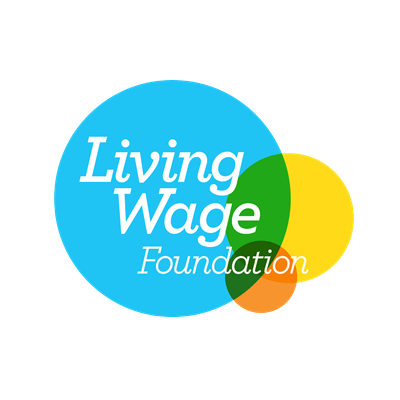Understanding your mental health
Growing up in today’s world can feel overwhelming at times. Whether it’s pressure from school, social challenges, or personal struggles, it’s okay to need a helping hand. At Alliance Psychology, we’re here to listen, support, and guide you through whatever you’re facing. Our team understands the unique challenges that come with being a child, teenager, or young adult, and we’re committed to helping you feel heard, understood, and empowered.
Where can you go to get Advice?
If you’re feeling overwhelmed, anxious, or just need someone to talk to, there are lots of places you can turn to for help,
Your School
If you are aged between 13-18 years and attend one of our partnership schools or colleges then you may be able to access our service confidentially.
You can find out if our service is active in your school.
If we are, you can request help here, and someone from our team will reach out to you. If your school isn’t listed, don’t worry! You can contact the NHS Single Point of Contact (SPOC) directly on 0300 013 2000 or visit the website here, where they can provide advice and direct you to the most suitable service. Additionally, if you live in Middlesbrough or Redcar, you can visit the LINK website to access similar support. Remember, help is available, and you don’t have to navigate this alone!
Self Help Resources
If you’re looking for ways to support your mental health on your own, we’ve got a list of helpful apps and websites that offer tools, tips, and resources just for you.
Urgent Help
If you need urgent help, please click here.
Take a look at our video
Riley’s Story: We’re proud to share this powerful video of a young person bravely opening up about their experience accessing our service. In her own words, she talks about what to expect when you access our services and the positive difference it can make. We hope her story helps other young people feel more comfortable reaching out for support. Riley, thank you for your courage in sharing this with us and others.
How we can help you
Alliance can support you with a range of therapies and interventions to deal with any difficulties you may be experiencing. Some of the ways which we can help are:
Counselling
Counselling is a safe and supportive way for young people and their families to talk about feelings, thoughts, and experiences. It’s a space where you can express yourself without judgment, explore challenges you’re facing, and learn ways to cope with them. Whether you’re feeling stressed, anxious, or just need someone to listen, a counsellor can help you understand your feelings and find solutions. Remember, asking for help is a sign of strength!
You can find out more information about our counselling service by downloading our leaflet
High Intensity Cognitive Behavioural Therapy (HICBT)
High intensity Cognitive Behavioural Therapy (CBT) is a more detailed form of support for young people dealing with moderate to severe mental health issues like strong anxiety or depression. In regular sessions with a therapist, you’ll dive deeper into your thoughts and feelings to understand them better. This therapy helps you develop personalised strategies to overcome your challenges, often using specific techniques to face your fears. High intensity CBT can lead to real changes and improvements in your mental well-being, giving you the tools to create a brighter future.
You can find out more information about our HICBT by downloading our leaflet
Low Intensity Cognitive Behavioural Therapy
Low intensity Cognitive Behavioural Therapy (CBT) is a helpful way to manage feelings of anxiety, stress, or sadness. This type of therapy focuses on changing negative thoughts and behaviours into more positive ones. It’s delivered in a relaxed way, through short sessions, making it easy to get involved. Low intensity CBT teaches you practical skills to handle challenges and feel better about yourself. It’s a great tool for anyone looking to improve their mental health.
You can find out more information about our LICBT by downloading our leaflet
Systemic Family Practice
Systemic family practice is a way for families to understand and improve their relationships. It focuses on how family members influence each other’s feelings and behaviours. In this practice, a therapist helps everyone in the family share their thoughts and experiences, making it easier to address issues like self-harm or difficult behaviour. By working together, families can identify patterns and find solutions to their challenges, leading to better communication and stronger bonds. This approach helps create a positive home environment where everyone feels supported.
You can find out more information about Systemic Family Practice by downloading our leaflet.
Parent-Led Interventions for Anxiety
Parent-led interventions for anxiety help parents take an active role in supporting their children who may be feeling anxious. This approach teaches parents strategies to understand what makes their child anxious and how to help them cope. By learning how to create a calming environment and encourage open conversations, parents can guide their children through their anxiety. This teamwork helps children build confidence and resilience, leading to a happier, more supportive family dynamic.
You can find out more information about Parent-led interventions for anxiety by downloading our leaflet.
Parent-Led Interventions for Conduct Issues
Parent-led interventions for conduct issues focus on helping parents manage challenging behaviours in their children, like being aggressive or defiant. This approach gives parents practical strategies to understand the reasons behind their child’s behaviour and create a positive home environment. Parents learn how to set clear rules and expectations, reward good behaviour, and deal with negative actions consistently. By working together, parents and children can improve behaviour and strengthen their relationship, leading to a happier family life.
You can find out more information about Parent-led interventions for conduct issues by downloading our leaflet.
Investing in Play
Investing in play is all about recognising how important play is for children’s development and happiness. Play isn’t just for fun; it helps children express themselves, learn new skills, and work through their feelings. By encouraging both unstructured and guided play, parents can help children build creativity, social skills, and stronger relationships. Investing in play allows children to develop resilience and confidence, making it easier for them to handle challenges and enjoy their childhood.
You can find out more information about investing in play by downloading our leaflet.





